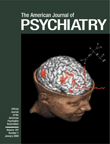Quetiapine and False-Positive Urine Drug Testing for Tricyclic Antidepressants
Mr. A was a 34-year-old, white male veteran with a history of previous treatment-refractory schizoaffective disorder and amphetamine dependence who was admitted to the hospital for an exacerbation of his depressive and psychotic symptoms. He also reported episodes of irritability, racing thoughts, increasing goal-directed activity, and insomnia, but the differential diagnosis between his amphetamine use and a manic component to his schizoaffective disorder had never been clarified. His only prescribed medication at the time of his admission was quetiapine, 600 mg/day.At Mr. A’s hospital admission, a urine sample was submitted for routine toxicology testing, including analysis for amphetamines, barbiturates, benzodiazepines, cannabinoids, cocaine metabolites, opiates, methadone, alcohol, and tricyclic antidepressants. The results showed a positive toxicology screening for tricyclic antidepressants, whereas the other toxicology assays on the specimen were all negative. Mr. A denied using tricyclics, but given the possibility that surreptitious use of that drug class might be materially contributing to his ongoing clinical symptoms (1), it was important to rule out drug interference in the assay.
References
Information & Authors
Information
Published In
History
Authors
Metrics & Citations
Metrics
Citations
Export Citations
If you have the appropriate software installed, you can download article citation data to the citation manager of your choice. Simply select your manager software from the list below and click Download.
For more information or tips please see 'Downloading to a citation manager' in the Help menu.
There are no citations for this item
View Options
View options
PDF/ePub
View PDF/ePubGet Access
Login options
Already a subscriber? Access your subscription through your login credentials or your institution for full access to this article.
Personal login Institutional Login Open Athens loginNot a subscriber?
PsychiatryOnline subscription options offer access to the DSM-5-TR® library, books, journals, CME, and patient resources. This all-in-one virtual library provides psychiatrists and mental health professionals with key resources for diagnosis, treatment, research, and professional development.
Need more help? PsychiatryOnline Customer Service may be reached by emailing [email protected] or by calling 800-368-5777 (in the U.S.) or 703-907-7322 (outside the U.S.).

